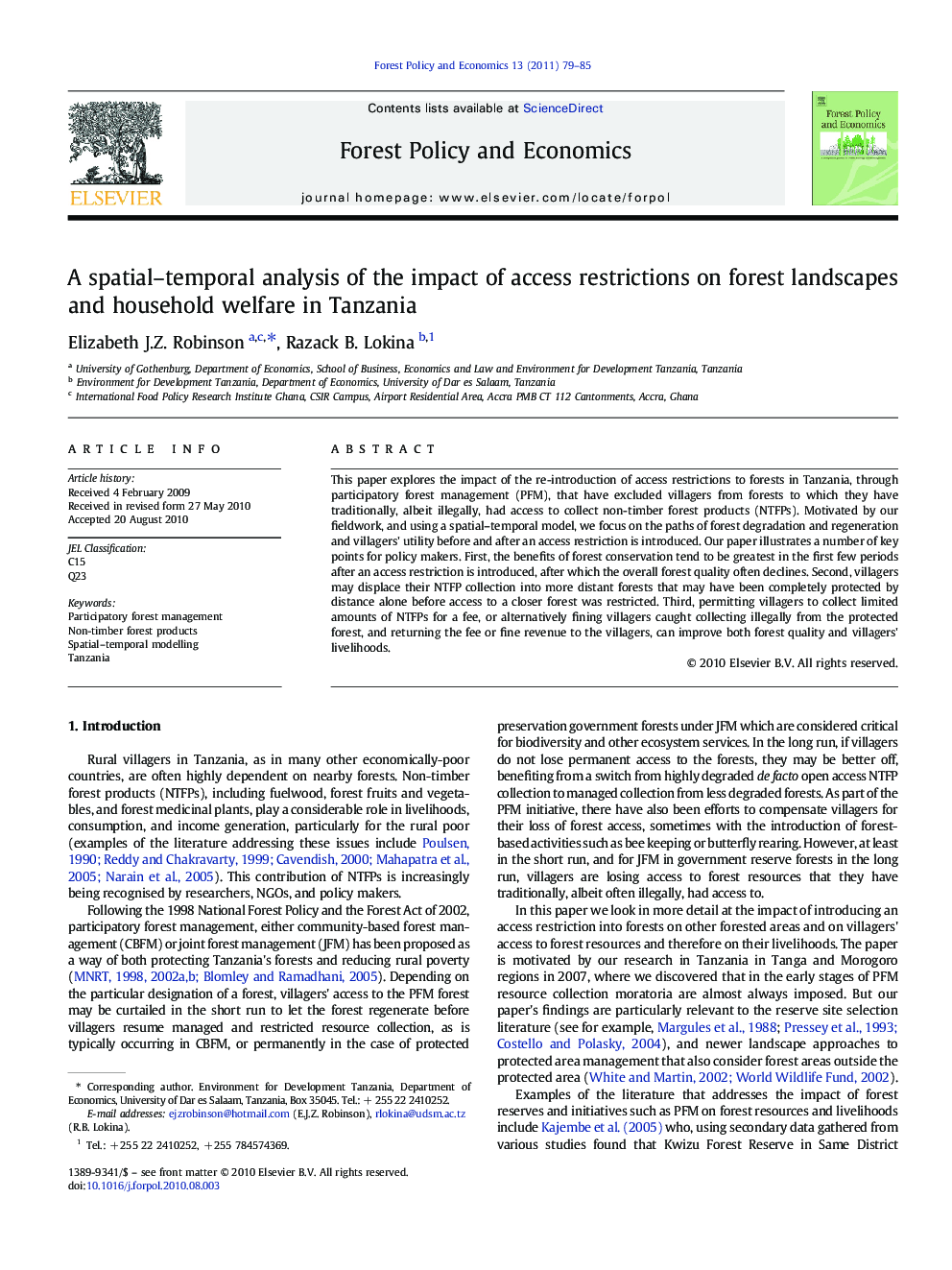| کد مقاله | کد نشریه | سال انتشار | مقاله انگلیسی | نسخه تمام متن |
|---|---|---|---|---|
| 91206 | 159761 | 2011 | 7 صفحه PDF | دانلود رایگان |

This paper explores the impact of the re-introduction of access restrictions to forests in Tanzania, through participatory forest management (PFM), that have excluded villagers from forests to which they have traditionally, albeit illegally, had access to collect non-timber forest products (NTFPs). Motivated by our fieldwork, and using a spatial–temporal model, we focus on the paths of forest degradation and regeneration and villagers' utility before and after an access restriction is introduced. Our paper illustrates a number of key points for policy makers. First, the benefits of forest conservation tend to be greatest in the first few periods after an access restriction is introduced, after which the overall forest quality often declines. Second, villagers may displace their NTFP collection into more distant forests that may have been completely protected by distance alone before access to a closer forest was restricted. Third, permitting villagers to collect limited amounts of NTFPs for a fee, or alternatively fining villagers caught collecting illegally from the protected forest, and returning the fee or fine revenue to the villagers, can improve both forest quality and villagers' livelihoods.
Research Highlights
► The benefits of forest conservation may be greatest in the first few periods after an access restriction is introduced.
► After an access restriction is introduced, villagers may displace their forest resource collection into more distant forests that were previously fully protected by distance alone.
► Permitting villagers to collect limited amounts of forest products for a fee, or alternatively fining villagers caught collecting illegally from the protected forest, and returning the fee or fine revenue to the villagers, can improve both forest quality and villagers' livelihoods.
Journal: Forest Policy and Economics - Volume 13, Issue 1, January 2011, Pages 79–85